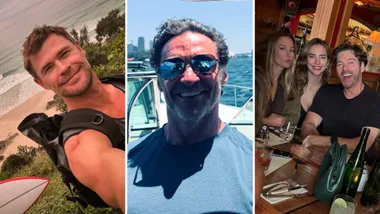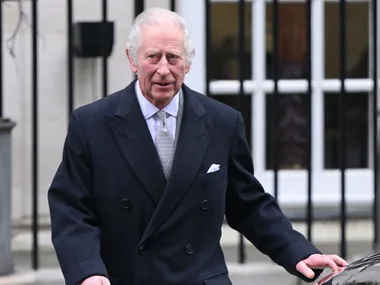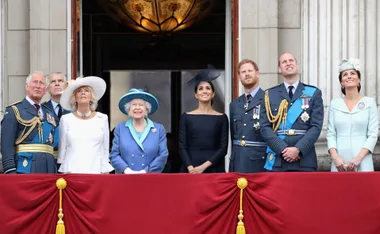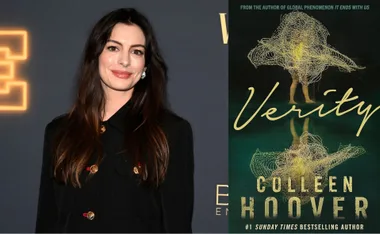A few years ago, The Australian Women’s Weekly Book Club was formed to tell book lovers about riveting new books and to introduce more people to the joys of reading.
Now that the Book Club is well established, The Australian Women’s Weekly is thrilled to bring you a fantastic new guide that will save readers time and money and lead them to some even more exciting discoveries in the world of books.
May 2008: Certain Girls by Jennifer Weiner. April 2008: This Charming Man by Marian Keyes. March 2008: Trip of a Lifetime by Liz Byrski. February 2008: Addition by Toni Jordan. January 2008: Bitter Chocolate by Lesley Lokko. December 2007: A Question of Death by Keyy Greenwood. November 2007: Monsoon by Di Morrisey. October 2007: Those Faraday Girls by Monica MacInerny September 2007: Broken by Ilsa Evans August 2007: Buying a Piece of Paris by Ellie Nielsen July 2007: Constance by Rosie Thomas June 2007: Still Life With Husband by Lauren Fox May 2007: The Scandal of the Season by Sophie Gee April 2007: This Way to the Sea by Gillian Nicholson March 2007: Shearwater by Andrea Mayes February 2007: From Baghdad, With Love by Lt Col Jay Kopelman January 2007: Blind Submission by Debra Ginsberg
December 2006: The Consequences of Marriage by Isla Dewar
November 2006: The Valley by Di Morrissey
October 2006: Bellydancing for Beginners by Liz Byrski
September 2006: Listen by Kate Veitch
August 2006: Three Bags Full by Leonie Swann
July 2006: The Shifting Fog by Kate Morton
June 2006: Once Upon a Day by Lisa Tucker
May 2006: Sparkles by Louise Bagshawe
April 2006: The Stone Angel by Katherine Scholes
March 2006: Anybody out there? by Marian Keyes
February 2006: Left bank by Kate Muir
January 2006: Social Crimes by Jane Stanton Hitchcock
December 2005: Love and Other Impossible Pursuits by Ayelet Waldman
November 2005: One Sunday by Joy Dettman
October 2005: The Last Anniversary by Liane Moriarty
September 2005: Plan B by Emily Barr
August 2005: Gone with the Windsors by Laurie Graham
July 2005: Those Garrison Women by Louise Shaffer
June 2005: Family Baggage by Monica McInerney
May 2005: The Italian Romance by Joanne Carroll
April 2005: With No One As Witness by Elizabeth George
March 2005: Sheer Abandon by Penny Vincenzi
February 2005: Where Rainbows End by Cecelia Ahern
January 2005: Serving Crazy with Curry by Amulya Malladi
December 2004: The Tenko Club by Elizabeth Noble
November 2004: The Stockmen by Rachael Treasure
October 2004: The Promise by Lisa Clifford
September 2004: Hello Missus: A Girl’s Own Guide to Foreign Affairs by Lynne Minion
August 2004: Spiking the Girl by Gabrielle Lord
July 2004: At Risk by Stella Rimington
June 2004: The Peacock Emporium by Jojo Moyes
May 2004: Do You Come Here Often? by Alexandra Potter
April 2004: The Other Side Of The Story by Marian Keyes
March 2004: The Walker by Jane Goodall
February 2004: Brother & Sister by Joanna Trollope
January 2004: The Amateur Marriage by Anne Tyler
December 2003: The Time Traveler’s Wife by Audrey Niffenegger
November 2003: Barra Creek by Di Morrissey
October 2003: Three Wishes by Liane Moriarty
September 2003: Love Begins With An A by Jean Vithoulkas
August 2003: Wives and Lovers by Jane Elizabeth Varley
July 2003: The Guilty Heart by Julie Parsons
June 2003: Henry’s Daughter by Joy Dettman
May 2003: Dying for Cake by Louise Limerick
April 2003: Shooting Butterflies by Marika Cobbold
March 2003: Too Close the the Falls by Catherine Gildiner (Flamingo)
February 2003: The Sunday Wife by Cassandra King (Allen & Unwin)
January 2003: The Last Girls by Lee Smith (Hodder Headline)
December 2002: The Innocent by Posie Graeme-Evans (Simon & Schuster)
November 2002: White Gardenia by Belinda Alexandra (HarperCollins)
October 2002: The Dive From Clausen’s Pier by Ann Packer (Piatkus)
About The Great Reads
Everyone, from book-worms to occasional readers, knows that buying a book can be a lottery. There are nearly 10,000 new books published each year in Australia alone, and with new authors springing up all the time, it can be difficult to select the one that is right for you.
The Australian Women’s Weekly makes that task easier with the The AWW Book Club Great Read. Each month, we select one book that comes highly recommended by a dedicated and expert team at The Weekly, a team comprising of people of different ages and tastes, bound by a shared passion for reading and for seeking out memorable books that will become treasured titles on your shelves at home. Our team has the advantage of access to early reviews and news of the popular overseas titles long before they reach the shelves and who’s hot and who’s not, via the London and New York bureaus of The Weekly.
The bottom line is though, if a book is named The Great Read, then you know that the team at AWW have truly loved that book and that they think you will love it too. Stickers titled “The AWW Great Read” will be placed on the front of the book – one of which will be featured in every issue of the magazine – and prominently displayed at most bookshops throughout Australia.
This means your days of wandering around a bookshop, haphazardly trying to find a book for yourself or someone else are at an end. And if you buy an AWW Great Read at your nearest Angus & Robertson book store and present the 10 per cent discount coupon published in this month’s Weekly, you will receive a 10 per cent discount off the recommended retail price. Also, buy an AWW Great Read and one or more of the other books featured on our Book Club pages in the magazine, at Angus & Robertson, present the 15 per cent coupon published in the magazine and receive a discount of 15 per cent off the total recommended retail price.
We wish you many hours of entertainment, enchantment and enlightenment in the world of books.
- These discounts will not apply where A & R has elected to sell books at a discounted price upon release, but customers will be charged whatever is the lesser price, either the A&R discounted price or The AWW Great Read offer.
May 2008: Certain Girls by Jennifer Weiner.
April 2008: This Charming Man by Marian Keyes.
March 2008: Trip of a Lifetime by Liz Byrski.
February 2008: Addition by Toni Jordan.
January 2008: Bitter Chocolate by Lesley Lokko.
December 2007: A Question of Death by Keyy Greenwood.
November 2007: Monsoon by Di Morrisey.
October 2007: Those Faraday Girls by Monica MacInerny
September 2007: Broken by Ilsa Evans
August 2007: Buying a Piece of Paris by Ellie Nielsen
July 2007: Constance by Rosie Thomas
June 2007: Still Life With Husband by Lauren Fox
May 2007: The Scandal of the Season by Sophie Gee
April 2007: This Way to the Sea by Gillian Nicholson
March 2007: Shearwater by Andrea Mayes
February 2007: From Baghdad, With Love by Lt Col Jay Kopelman
January 2007: Blind Submission by Debra Ginsberg
December 2006: The Consequences of Marriage by Isla Dewar
November 2006: The Valley by Di Morrissey
October 2006: Bellydancing for Beginners by Liz Byrski
September 2006: Listen by Kate Veitch
August 2006: Three Bags Full by Leonie Swann
July 2006: The Shifting Fog by Kate Morton
June 2006: Once Upon a Day by Lisa Tucker
May 2006: Sparkles by Louise Bagshawe
April 2006: The Stone Angel by Katherine Scholes
March 2006: Anybody out there? by Marian Keyes
February 2006: Left bank by Kate Muir
January 2006: Social Crimes by Jane Stanton Hitchcock
December 2005: Love and Other Impossible Pursuits by Ayelet Waldman
November 2005: One Sunday by Joy Dettman
October 2005: The Last Anniversary by Liane Moriarty
September 2005: Plan B by Emily Barr
August 2005: Gone with the Windsors by Laurie Graham
July 2005: Those Garrison Women by Louise Shaffer
June 2005: Family Baggage by Monica McInerney
May 2005: The Italian Romance by Joanne Carroll
April 2005: With No One As Witness by Elizabeth George
March 2005: Sheer Abandon by Penny Vincenzi
February 2005: Where Rainbows End by Cecelia Ahern
January 2005: Serving Crazy with Curry by Amulya Malladi
December 2004: The Tenko Club by Elizabeth Noble
November 2004: The Stockmen by Rachael Treasure
October 2004: The Promise by Lisa Clifford
September 2004: Hello Missus: A Girl’s Own Guide to Foreign Affairs by Lynne Minion
August 2004: Spiking the Girl by Gabrielle Lord
July 2004: At Risk by Stella Rimington
June 2004: The Peacock Emporium by Jojo Moyes
May 2004: Do You Come Here Often? by Alexandra Potter
April 2004: The Other Side Of The Story by Marian Keyes
March 2004: The Walker by Jane Goodall
February 2004: Brother & Sister by Joanna Trollope
January 2004: The Amateur Marriage by Anne Tyler
December 2003: The Time Traveler’s Wife by Audrey Niffenegger
November 2003: Barra Creek by Di Morrissey
October 2003: Three Wishes by Liane Moriarty
September 2003: Love Begins With An A by Jean Vithoulkas
August 2003: Wives and Lovers by Jane Elizabeth Varley
July 2003: The Guilty Heart by Julie Parsons
June 2003: Henry’s Daughter by Joy Dettman
May 2003: Dying for Cake by Louise Limerick
April 2003: Shooting Butterflies by Marika Cobbold
March 2003: Too Close the the Falls by Catherine Gildiner (Flamingo)
February 2003: The Sunday Wife by Cassandra King (Allen & Unwin)
January 2003: The Last Girls by Lee Smith (Hodder Headline)
December 2002: The Innocent by Posie Graeme-Evans (Simon & Schuster)
November 2002: White Gardenia by Belinda Alexandra (HarperCollins)
October 2002: The Dive From Clausen’s Pier by Ann Packer (Piatkus)
About The Great Reads
Everyone, from book-worms to occasional readers, knows that buying a book can be a lottery. There are nearly 10,000 new books published each year in Australia alone, and with new authors springing up all the time, it can be difficult to select the one that is right for you.
The Australian Women’s Weekly makes that task easier with the The AWW Book Club Great Read. Each month, we select one book that comes highly recommended by a dedicated and expert team at The Weekly, a team comprising of people of different ages and tastes, bound by a shared passion for reading and for seeking out memorable books that will become treasured titles on your shelves at home. Our team has the advantage of access to early reviews and news of the popular overseas titles long before they reach the shelves and who’s hot and who’s not, via the London and New York bureaus of The Weekly.
The bottom line is though, if a book is named The Great Read, then you know that the team at AWW have truly loved that book and that they think you will love it too. Stickers titled “The AWW Great Read” will be placed on the front of the book – one of which will be featured in every issue of the magazine – and prominently displayed at most bookshops throughout Australia.
This means your days of wandering around a bookshop, haphazardly trying to find a book for yourself or someone else are at an end. And if you buy an AWW Great Read at your nearest Angus & Robertson book store and present the 10 per cent discount coupon published in this month’s Weekly, you will receive a 10 per cent discount off the recommended retail price. Also, buy an AWW Great Read and one or more of the other books featured on our Book Club pages in the magazine, at Angus & Robertson, present the 15 per cent coupon published in the magazine and receive a discount of 15 per cent off the total recommended retail price.
We wish you many hours of entertainment, enchantment and enlightenment in the world of books.
- These discounts will not apply where A & R has elected to sell books at a discounted price upon release, but customers will be charged whatever is the lesser price, either the A&R discounted price or The AWW Great Read offer.












































